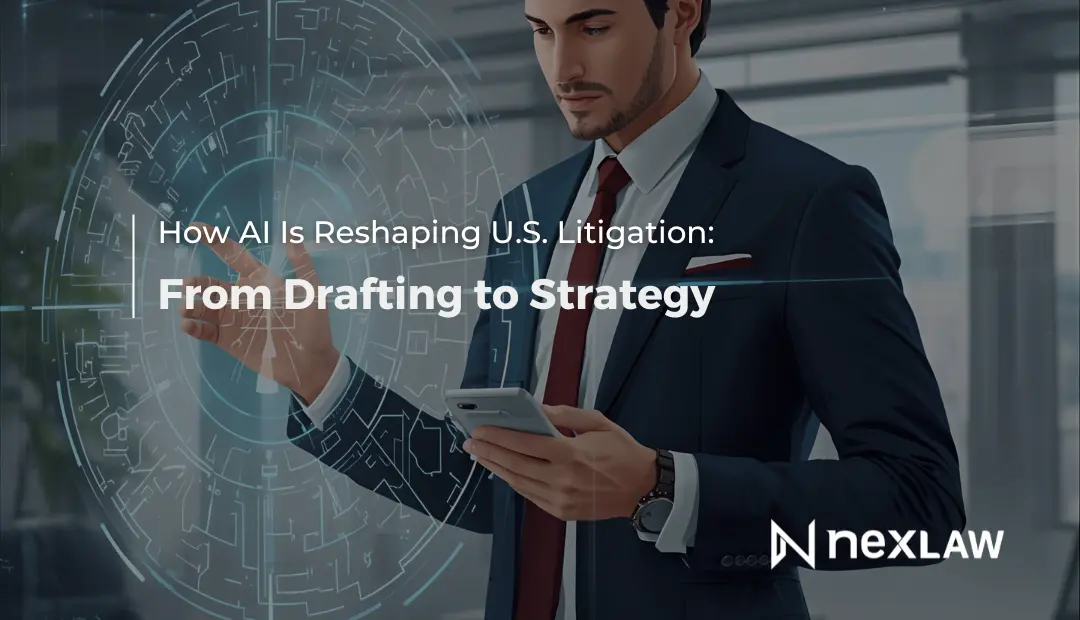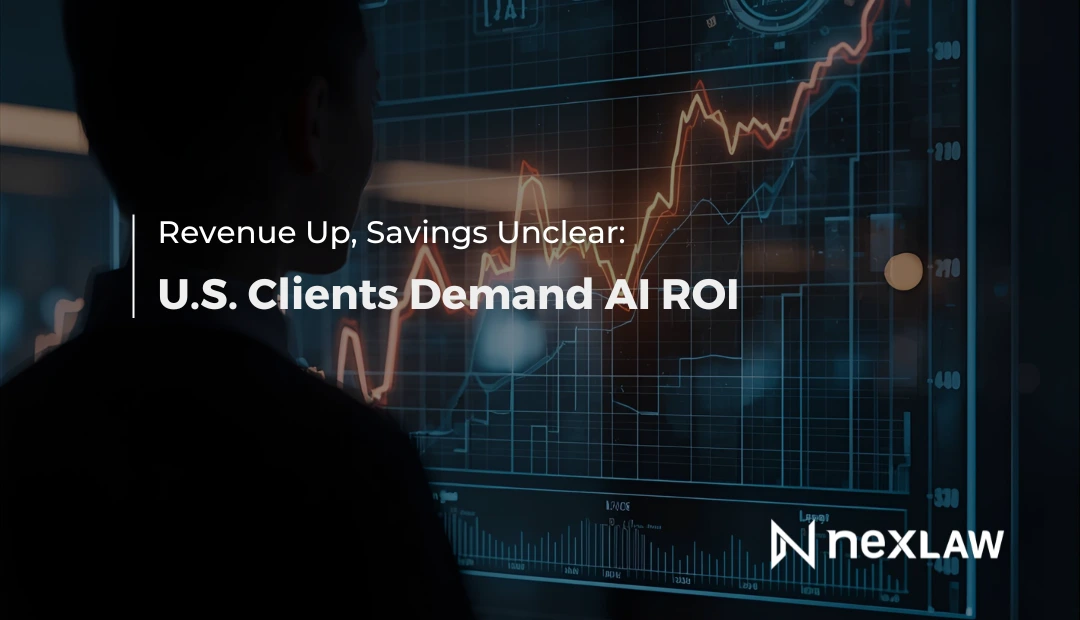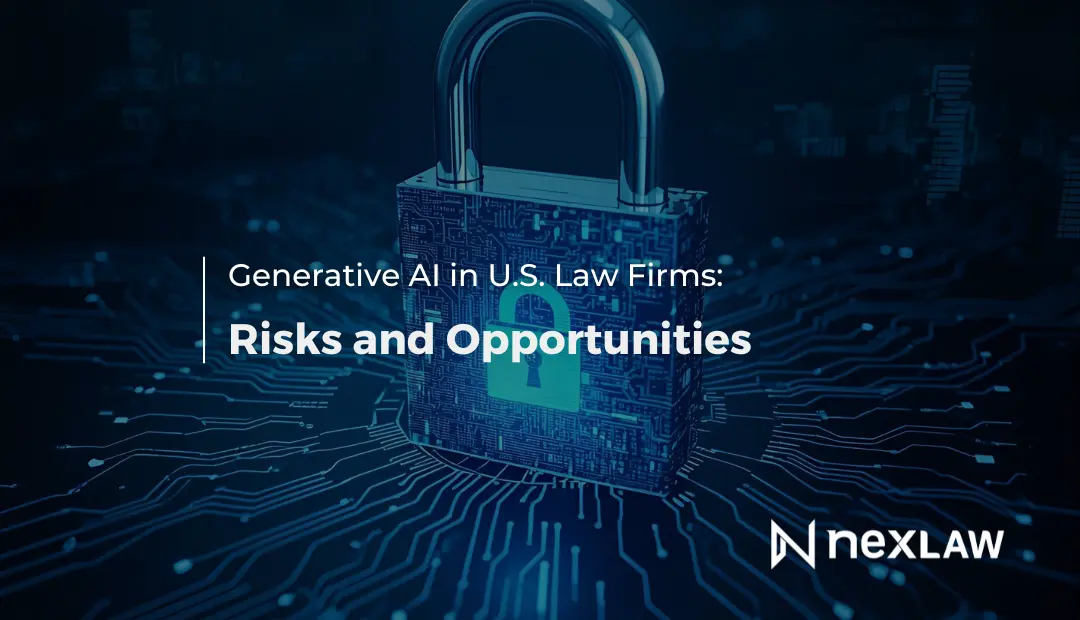How AI Is Reshaping U.S. Litigation - From Drafting to Strategy
The AI Transformation in Legal Practice
Artificial intelligence (AI) is increasingly becoming an essential tool for attorneys across the United States. Law firms are leveraging AI to streamline litigation workflows, from drafting motions and pleadings to reviewing documents and organizing discovery materials. This technology can reduce repetitive tasks and improve efficiency, allowing lawyers to focus on strategic decision-making and client advocacy.
Unlock Legal Insights Instantly!
However, AI adoption in litigation also presents unique challenges. Legal professionals must navigate issues of accuracy, confidentiality, and ethical compliance. Without careful oversight, AI-generated outputs can introduce errors, potentially affecting case outcomes or exposing firms to professional risks.
How AI Supports Litigation Workflows
1. Document Drafting and Review
AI-powered platforms can help lawyers draft contracts, motions, and other legal documents more efficiently. These tools analyze large volumes of text to identify key clauses, highlight inconsistencies, and summarize critical information.
While some general AI tools, like ChatGPT, are capable of generating text, they are not trained on verified U.S. legal sources. This can result in inaccuracies, or “hallucinations,” where AI produces plausible but incorrect information. In litigation, even minor errors in documents can have serious consequences, making specialized legal AI a safer option.
2. Legal Research
AI assists in reviewing case law, statutes, and regulatory guidance more efficiently than traditional research methods. Advanced platforms can summarize legal information, track developments across jurisdictions, and organize relevant references, helping lawyers save time while maintaining accuracy.
3. Strategic Planning
Beyond research and drafting, AI can support litigation strategy by organizing information, identifying patterns in case outcomes, and assisting with risk assessments. While AI provides valuable insights, human judgment remains central. Lawyers use AI to enhance their decision-making, not replace it.
Limitations of General AI in Legal Practice
General-purpose AI tools are designed for broad applications, such as content generation or conversational tasks. When applied to U.S. legal work, they face several limitations:
- Accuracy Concerns: Outputs may be incorrect or incomplete, which can affect legal advice or filings.
- Data Privacy Risks: Many general AI platforms operate in the cloud, storing user inputs that could include confidential client information.
- Lack of Legal Specialization: These models are not trained on verified legal datasets, limiting their reliability for case law, statutes, or procedural rules.
For these reasons, general AI should not be relied upon for professional legal work, particularly in litigation.
Specialized Legal AI: A Safer Alternative
Platforms like NexLaw AI are specifically designed for U.S. litigation. They prioritize accuracy, confidentiality, and compliance with professional standards. Key benefits include:
- Verified Legal Data: Outputs are generated from curated databases of statutes, case law, and regulations.
- Confidentiality by Design: Client data remains private and secure, protecting attorney-client privilege.
- Litigation-Focused Tools: Features support drafting motions, discovery checklists, and case management.
- Ethical Integration: Aligns with professional ethical standards, supporting responsible AI use.
By combining efficiency with reliability, specialized AI helps law firms improve workflows while minimizing risk.
Practical Benefits for Law Firms
Using specialized legal AI can provide tangible advantages:
- Reduce Risk of Errors: Minimize inaccuracies by relying on verified legal sources.
- Increase Efficiency: Automate repetitive tasks, freeing attorneys to focus on strategy and client service.
- Maintain Compliance: Support adherence to professional rules and confidentiality obligations.
- Enhance Decision-Making: Use AI insights to inform case strategies and assess risks effectively.
These benefits allow firms to integrate AI responsibly, improving productivity without compromising legal standards.
Integrating AI Safely in Litigation
For successful AI adoption, firms should consider three key practices:
- Human Oversight: Always review AI-generated content before filing or submitting to clients.
- Governance Policies: Establish clear guidelines for how AI is used across drafting, research, and case management.
- Ethical Compliance: Ensure AI tools are aligned with professional conduct rules and data protection requirements.
By following these practices, law firms can maximize the benefits of AI while maintaining professional responsibility.
Why NexLaw AI Leads in U.S. Litigation
NexLaw AI is tailored for attorneys and pro se litigants, offering features that general-purpose AI cannot:
| Feature | NexLaw AI | General AI Tools (Chat GPT, Gemini, Perplexity) |
|---|---|---|
| Legal-Specific Training | ✅ Curated U.S. legal datasets | ❌ Not verified for legal accuracy |
| Accuracy | ✅ Minimized hallucinations | ❌ Variable, can produce errors |
| Data Privacy | ✅ Designed for confidentiality | ❌ Cloud storage risks |
| Litigation Tools | ✅ Drafting, discovery, strategy support | ❌ Limited or generic |
| Compliance | ✅ Aligns with ethical standards | ❌ Not designed for professional use |
This comparison highlights why specialized AI is the safest choice for litigation work.
Looking Ahead: The Role of AI in U.S. Legal Practice
AI adoption is likely to continue expanding across law firms, shaping how attorneys conduct research, draft documents, and make strategic decisions. Specialized platforms, like NexLaw AI, allow firms to embrace innovation while ensuring outputs are accurate, secure, and compliant.
Training attorneys and staff on AI use, implementing governance policies, and selecting the right tools will be critical for future success. By combining human expertise with AI efficiency, law firms can enhance client service, optimize operations, and maintain professional standards in a rapidly evolving legal landscape.
Conclusion
AI is transforming U.S. litigation by offering efficiency, predictive insights, and enhanced workflows. However, general AI models are not designed for legal practice and may introduce risks related to accuracy, confidentiality, and compliance.
Specialized legal AI platforms, such as NexLaw AI, provide a safe and reliable solution for law firms. By leveraging verified data, protecting client information, and supporting ethical practice, NexLaw empowers attorneys to adopt AI responsibly, enhance productivity, and make informed strategic decisions.
Lawyers who embrace AI today are shaping the legal profession of tomorrow. Whether you’re part of a litigation team, a solo attorney, or a paralegal eager to expand your role, NexLaw makes it possible.
NexLaw is designed to help paralegal and attorneys—solo or from small and mid-size—prepare cases more efficiently, with greater accuracy and strategic insight.
Book a Guided Demo — See how NexLaw fits seamlessly into your practice and transforms your workflows with a quick walkthrough
You can either start your free 3-day trial (no card required) or 7-day trial (card required) to get hands-on right away — Explore NexLaw risk-free and experience firsthand how AI can enhance efficiency, accuracy, and client satisfaction.
*t&c applied | visit our website for more details
With NexLaw, the future of litigation is here - AI-powered, accurate, and accessible.



